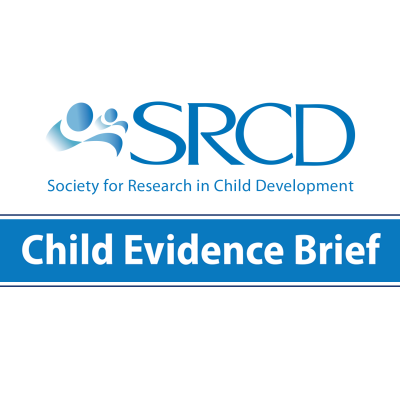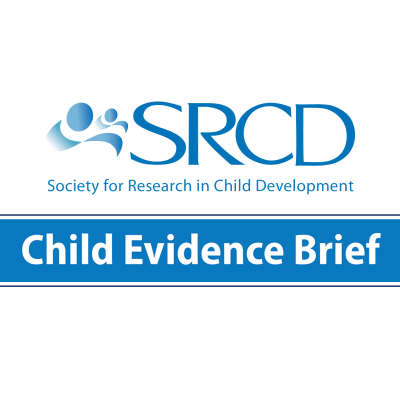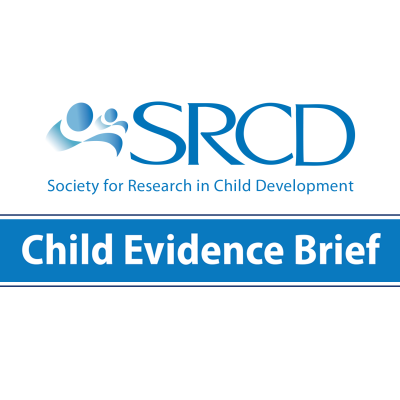COVID-19 Job and Income Loss Jeopardize Child Well-Being: Income Support Policies Can Help
Authors
- Anna Gassman-Pines, Ph.D., Sanford School of Public Policy, Duke University
- Lisa A. Gennetian, Ph.D., Sanford School of Public Policy, Duke University
Within just the first three months of the COVID-19 financial fallout, one in five children in the United States experienced the job loss of an adult in their household.1 As the pandemic continues and the challenges of job and income recovery persist, families will continue to face unprecedented economic uncertainty. The burdens of job loss and continued economic uncertainty are felt by a wide range of families, though they are especially elevated among lower-income households and families of color.1, 2 COVID-19-driven increases in job loss, income instability, and resulting strains on housing and food security are impairing child and family wellbeing. Temporary policy supports – such as stimulus checks, expanded Unemployment Insurance (UI) benefits, rent moratoriums, and expanded food programs – helped stem these losses and protect children.3 Yet, burdensome distribution mechanisms and the temporary nature of such benefits limited their reach. As policy supports expire, economic harm is growing.4, 5 Renewal and reinstatement of economic supports will reduce the stress of economic uncertainty, help financially stabilize families, and enhance parents’ capacity to support their children’s development.
Low Income and Economic Instability Make It Difficult for Children to Thrive
Both low family income and instability in income are detrimental for children’s well-being.6 Even before the pandemic began, income instability was increasingly common,7, 8 especially among lower-wage workers and workers of color,9 because of unstable and unpredictable work hours as well as economic shocks, such as recessions. Research shows wide or frequent fluctuations in income increase family stress, drain parents’ mental bandwidth, redirect parent time and attention away from parenting and toward the demands of juggling day-to-day basic needs, and disrupt family routines.10, 11 Evidence from behavioral economics and developmental science point to how income instability harms children, particularly in the context of poverty:
- One-time income shocks, such as an unexpected parental job loss, impair parental relationship quality and can increase family conflict.12-14 Parental job loss also has adverse effects on children’s academic achievement and mental health.15-18
- Income instability reduces school engagement and attendance.19-20 Short-term fluctuations in income (e.g., between benefit payments) are associated with reductions in achievement test scores.21 Large monthly income fluctuations also negatively affect children’s long-term educational attainment.22
- Both short- and long-term income instability are associated with increased school disciplinary infractions, suspensions, and expulsions among adolescents, particularly among adolescents of color.19, 20, 23
Parent Job Loss and Uncertain Recovery Due to COVID-19 Are Harming Families and Children
COVID-19 has dramatically increased children’s exposure to parental job loss and income instability. Over 52 million Americans who live in households with children experienced a loss of employment between March and early November, 2020.24 Many parents who have remained employed during the pandemic are facing increasing instability in pay and work hours.25 Recent research found that parents who experienced both job and income loss during COVID-19 reported heightened stress and depression as well as more harsh parenting behaviors towards their children.26 Families are newly relying on food assistance as shown by unprecedented demand at food banks, which increased up to 20% in March 2020 alone, with persistently high levels through the summer.27 In addition, child care and educational programs have been disrupted, with estimated losses of nearly half of licensed child care slots28 imposing further challenges to parents’ current or future employment and children’s learning and development.
COVID-19-driven increases in job loss, income instability, and resulting strains on housing and food security are impairing child and family well-being.
Although the Full Effects of COVID-19 on Child Well-Being Are Not Yet Known, Evidence of Its Negative Effects on Children from Preschool Age to Late Adolescence Is Already Apparent
- Children’s behavioral health has worsened during the pandemic, particularly in families that experienced a child care disruption.29
- Service workers who experienced COVID-19-related job loss reported higher levels of anxiety and uncooperativeness in their young children.30
- Latino parents who are experiencing high rates of job loss are worried about their children falling behind in school.31
- Adolescents are increasingly stressed by the pandemic. The more stress they feel, the more depressive symptoms they report.32
- COVID-19-related job loss is associated with parents’ psychological maltreatment of preschool and elementary schoolaged children.33
Renewal and reinstatement of economic supports will reduce the stress of economic uncertainty, help financially stabilize families, and enhance parents’ capacity to support their children’s development.
Federal Income Supports Temporarily Eased the Economic Stresses of COVID-19 for Families with Children
The federal income support policies implemented at the beginning of the COVID-19 pandemic, including expanded UI and one-time direct cash payments, offered an important short-term income boost for recipient families.34 These temporary small income enhancements improved disposable income,35 allowed families to pay for expenses such as food,36, 37 and reduced poverty in the short-term.38, 39 Research shows reentry into employment was not interrupted by these expanded income supports.40
Enhanced food and housing supports have also shown benefits to child well-being. The pandemic EBT program (P-EBT), which provided families with vouchers to replace free or subsidized school meals, has led to a 20% reduction in food insecurity in households with children, lifting an estimated 2.7–3.9 million children out of hunger.41 Rent moratoriums implemented as part of the federal CARES Act paused evictions temporarily through August 2020 for up to 20 million renter households, which helped to stabilize children’s housing.42
Distribution of Federal Supports Has Been Uneven and Inequitable
Because the U.S. lacks universal eligibility and delivery systems for government supports, not everyone eligible for COVID-19 income support benefits has received them.43 Nearly 9 million eligible people did not receive the CARES Act stimulus check, with fewer Black and Hispanic families reporting any or on-time receipt.44 In a sample of service workers who had lost their jobs during the pandemic, only 54% had received UI, despite expanded eligibility.34 In the same sample, two out of three eligible families with schoolaged children reported they had not yet received P-EBT by the end of June 2020.34 Efforts to increase access, such as creating a streamlined access portal that is not contingent on prior tax filings and incorporating local and grassroots outreach efforts, can be cost efficient ways to increase universal access and achieve the goal of equitably protecting families.45, 46
Continued Income Supports Are Necessary to Support Children’s Well-Being During COVID’s Unprecedented Economic Disruption
COVID-19 has driven unprecedented increases in economic loss and instability, particularly among low-income families and families of color. This economic instability has already produced measurable harm to children’s development. The U.S. lacks a rapid response system to reach all families and children, and initial expanded supports have expired, exacerbating the economic needs of millions of families and their children. Supports that Congress put into place early in the pandemic temporarily met goals of reducing further harm to children. Renewal and reinstatement of economic supports will reduce the stress of economic uncertainty, help financially stabilize families, and enhance parents’ capacity to support their children’s development. Further, efforts to increase accessibility will ensure more efficient and equitable distribution of economic supports.
Endnotes / References
(1) Bokun, A., Himmelstern, J., Jeong, W., Meier, A., Musick, K., & Warren, R. (2020). The unequal impact of COVID-19 on children’s economic vulnerability. Retrieved from https://econofact.org/the-unequal-impact-of-covid-19-on-childrens-economic-vulnerability
(2) Tyson, L., & Mendonca, L. (2020). The recovery plan America needs. Retrieved from https://www.project-syndicate.org/commentary/us-economic-recovery-package-covid19-by-laura-tyson-and-lenny-mendonca-2020-07
(3) Bitler, M. P., Hoynes, H. W., & Schanzenbach, D. W. (2020). The social safety net in the wake of COVID-19. NBER Working Paper, No. 27796. http://doi.org/10.3386/w27796
(4) Brown, S. (2020). How COVID-19 is affecting Black and Latino families’ employment and financial well-being. Retrieved from https://www.urban.org/urban-wire/how-covid-19-affecting-black-and-latino-families-employment-and-financial-well-being
(5) NPR, Robert Wood Johnson Foundation, & Harvard T. H. Chan School of Public Health. (2020). The impact of coronavirus on households across America. Retrieved from https://drive.google.com/file/d/1Bd6dcGSke4fm8TyEjAz__UFXl1k1z8oP/view
(6) Hardy, B. L., Hill, H. D., & Romich, J. (2019). Strengthening social programs to promote economic stability during childhood. SRCD Social Policy Report, 32(2). http://doi.org/10.1002/sop2.4
(7) Hardy, B. L., & Ziliak, J. P. (2014). Decomposing trends in income volatility: The “wild ride” at the top and bottom. Economic Inquiry, 52(1), 459-476. http://doi.org/10.1111/ecin.12044
(8) Wolf, S., Gennetian, L. A., Morris, P. A., & Hill, H. D. (2014). Patterns of income instability among low‐and middle‐income households with children. Family Relations, 63(3), 397-410. http://doi.org/10.1111/fare.12067
(9) Morduch, J., & Schneider, R. (2017). The financial diaries: How American families cope in a world of uncertainty. Princeton, NJ: Princeton University Press.
(10) Gennetian, L. A., & Shafir, E. (2015). The persistence of poverty in the context of financial instability: A behavioral perspective. Journal of Policy Analysis and Management, 34(4), 904-936. http://doi.org/10.1002/pam.21854
(11) Mullainathan, S., & Shafir, E. (2013). Scarcity: Why having too little means so much. New York, New York: Macmillan.
(12) Schenck-Fontaine, A., Gassman-Pines, A., Gibson-Davis, C. M., & Ananat, E. O. (2017). Local job losses and child maltreatment: The importance of community context. Social Service Review, 91, 233-263. http://doi.org/10.1086/692075
(13) Schenck-Fontaine, A., & Gassman-Pines, A. (2020). Income inequality and child maltreatment risk during economic recession. Children and Youth Services Review, 112, 104926. http://doi.org/10.1016/j.childyouth.2020.104926
(14) Brand, J. E. (2015). The far-reaching impact of job loss and unemployment. Annual Review of Sociology, 41, 359-375. http://doi.org/10.1146/annurev-soc-071913-043237
(15) Ananat, E. O., Gassman-Pines, A., Francis, D. V., & Gibson-Davis, C. M. (2017). Linking job loss, inequality, mental health, and education. Science, 356(6343), 1127-1128. http://doi.org/10.1126/science.aam5347
(16) Gassman-Pines, A., Ananat, E. O., & Gibson-Davis, C. M. (2014). Effects of statewide job losses on adolescent suicide-related behaviors. American Journal of Public Health, 104, 1964-1970. http://doi.org/10.2105/AJPH.2014.302081
(17) Kalil, A. (2013). Effects of the Great Recession on child development. The ANNALS of the American Academy of Political and Social Science, 650(1), 232-250. http://doi.org/10.1177/0002716213500453
(18) Stevens, A. H., & Schaller, J. (2011). Short-run effects of parental job loss on children's academic achievement. Economics of Education Review, 30(2), 289-299. http://doi.org/10.1016/j.econedurev.2010.10.002
(19) Gennetian, L. A., Wolf, S., Hill, H. D., & Morris, P. A. (2015). Intrayear household income dynamics and adolescent school behavior. Demography, 52(2), 455-483. http://doi.org/10.1007/s13524-015-0370-9
(20) Gennetian, L. A., Rodrigues, C., Hill, H. D., & Morris, P. A. (2018). Stability of income and school attendance among NYC students of low-income families. Economics of Education Review, 63, 20-30. http://doi.org/10.1016/j.econedurev.2018.01.003
(21) Gassman-Pines, A., & Bellows, L. E. (2018). Food instability and academic achievement: A quasi-experiment using SNAP benefit timing. American Educational Research Journal, 55, 897-927. http://doi.org/10.3102/0002831218761337
(22) Hardy, B. L. (2014). Childhood income volatility and adult outcomes. Demography, 51(5), 1641-1665. http://doi.org/10.1007/s13524-014-0329-2
(23) Gennetian, L. A., Seshadri, R., Hess, N. D., Winn, A. N., & Goerge, R. M. (2016). Supplemental Nutrition Assistance Program (SNAP) benefit cycles and student disciplinary infractions. Social Service Review, 90(3), 403-433. http://doi.org/10.1086/688074
(24) U. S. Census Bureau. (2020). Week 18 Household Pulse Survey: October 28 – November 9. Retrieved from https://www.census.gov/data/tables/2020/demo/hhp/hhp18.html
(25) Ananat, E. O., & Gassman-Pines, A. (2020). Snapshot of the COVID crisis impact on working families. Econofact. Retrieved from https://econofact.org/snapshot-of-the-covid-crisis-impact-on-working-families
(26) Kalil, A., Mayer, S., & Shah, R. (2020). Impact of the COVID-19 crisis on family dynamics in economically vulnerable households. University of Chicago, Becker Friedman Institute for Economics Working Paper (2020-139). Retrieved from https://bfi.uchicago.edu/working-paper/impact-of-the-covid-19-crisis-on-family-dynamics-in-economically-vulnerable-households/
(27) Morello, P. (2020). The first months of the food bank response to COVID, by the numbers. Retrieved from https://www.feedingamerica.org/hunger-blog/first-months-food-bank-response-covid-numbers
(28) Jessen-Howard, S., & Workman, S. (2020). Coronavirus pandemic could lead to permanent loss of nearly 4.5 million child care slots. Retrieved from https://www.americanprogress.org/issues/early-childhood/news/2020/04/24/483817/coronavirus-pandemic-lead-permanent-loss-nearly-4-5-million-child-care-slots/
(29) Patrick, S. W., Henkhaus, L. E., Zickafoose, J. S., Lovell, K., Halvorson, A., Loch, S., . . . Davis, M. M. (2020). Well-being of parents and children during the COVID-19 pandemic: A national survey. Pediatrics, 146(4). http://doi.org/10.1542/peds.2020-016824
(30) Gassman-Pines, A., Ananat, E. O., & Fitz-Henley, J. (2020). COVID-19 and parent-child psychological well-being. Pediatrics, 146(4). http://doi.org/10.1542/peds.2020-007294
(31) Latino Decisions. (2020). Latino parent voices: What our families need now. Retrieved from Los Angeles, CA: https://nationalsurvey.ap-od.org/wp-content/uploads/2020/08/LatinoParentVoices_Report.pdf
(32) Gotlib, I. H., Borchers, L. R., Chahal, R., Gifuni, A. J., & Ho, T. (2020). Early life stress predicts depressive symptoms in adolescents during the COVID-19 pandemic: The mediating role of perceived stress. Available at SSRN: https://ssrn.com/abstract=3606441
(33) Lawson, M., Piel, M. H., & Simon, M. (2020). Child maltreatment during the COVID-19 pandemic: Consequences of parental job loss on psychological and physical abuse towards children. Child Abuse & Neglect, 104709. http://doi.org/10.1016/j.chiabu.2020.104709
(34) Ananat, E. O., Bellows, L. E., & Gassman-Pines, A. (2020). Working families' experiences of the enduring COVID crisis: Snapshot from midsummer. Durham, NC: Duke Center for Child and Family Policy. Retrieved from https://childandfamilypolicy.duke.edu/wp-content/uploads/2020/11/Working-Families-Experiences-During-Midsummer-of-COVID.pdf
(35) Garvey, M., & Sahm, C. (2020). Get more money immediately to U.S. families and help them out of the coronavirus recession. Retrieved from https://equitablegrowth.org/get-more-money-immediately-to-u-s-families-and-help-them-out-of-the-coronavirus-recession/
(36) Chetty, R., Friedman, J. N., Hendren, N., Stepner, M. & The Opportunity Insights Team (2020). The economic impacts of COVID-19: Evidence from a new public database using private sector data. National Bureau of Economic Research Working Paper, No. 27431. http://doi.org/10.3386/w27431
(37) Garner, T. I., Safir, A., & Schild, J. (2020). Receipt and use of stimulus payments in the time of the Covid-19 pandemic. Beyond the Numbers: Prices & Spending, 9, no. 10. Retrieved from https://www.bls.gov/opub/btn/volume-9/receipt-and-use-of-stimulus-payments-in-the-time-of-the-covid-19-pandemic.htm
(38) Parolin, Z., Curran, M., Matsudaira, J., Waldfogel, J., & Wimer, C. (2020). Monthly poverty rates in the United States during the COVID-19 pandemic. Columbia University, Poverty and Social Policy Working Paper. Retrieved from https://static1.squarespace.com/static/5743308460b5e922a25a6dc7/t/5f87c59e4cd0011fabd38973/1602733471158/COVID-Projecting-Poverty-Monthly-CPSP-2020.pdf
(39) Han, J., Meyer, B. D., & Sullivan, J. X. (2020). Income and poverty in the COVID-19 pandemic. University of Chicago, Becker Friedman Institute for Economics Working Paper (2020-84). Retrieved from https://bfi.uchicago.edu/working-paper/income-and-poverty-in-the-covid-19-pandemic/
(40) Karpman, M., & Acs, G. (2020). Unemployment Insurance and economic impact payments associated with reduced hardship following CARES Act. Washington, DC: Urban Institute. Retrieved from https://www.urban.org/sites/default/files/publication/102486/unemployment-insurance-and-economic-impact-payments-associated-with-reduced-hardship-following-cares-act.pdf
(41) Bauer, L., Pitts, A., Ruffini, K., & Schanzenbach, D. (2020). The effect of Pandemic-EBT on measures of food hardship. Washington, DC: Brookings Institution. Retrieved from https://www.brookings.edu/wp-content/uploads/2020/07/P-EBT_LO_7.30.pdf
(42) Acosta, S., Bailey, A., & Bailey, P. (2020). Extend CARES Act eviction moratorium, combine With rental assistance to promote housing stability. Washington, DC: Center on Budget and Policy Priorities. Retrieved from https://www.cbpp.org/sites/default/files/atoms/files/7-24-20hous.pdf
(43) Gennetian, L. A. (2020). Challenges of equitable rapid response cash payments. Econofact. Retrieved from https://econofact.org/challenges-of-equitable-rapid-response-cash-payments
(44) Roll, S., & Grinstein-Weiss, M. (2020). Did CARES Act benefits reach vulnerable Americans? Evidence from a national survey. Washington, DC: Brookings Institute. Retrieved from https://www.brookings.edu/research/did-cares-act-benefits-reach-vulnerable-americans-evidence-from-a-national-survey/
(45) Oliver, W. (2020). Louisiana grassroots organizations can be key partners during COVID-19 recovery. Washington, DC: Urban Institute. Retrieved from https://www.urban.org/urban-wire/louisiana-grassroots-organizations-can-be-key-partners-during-covid-19-recovery
(46) U. S. Internal Revenue Service. (2020). Use IRS non-filers: Enter payment info here tool to get economic impact payment; many low-income, homeless qualify. Retrieved from https://www.irs.gov/newsroom/use-irs-non-filers-enter-payment-info-here-tool-to-get-economic-impact-payment-many-low-income-homeless-qualify


